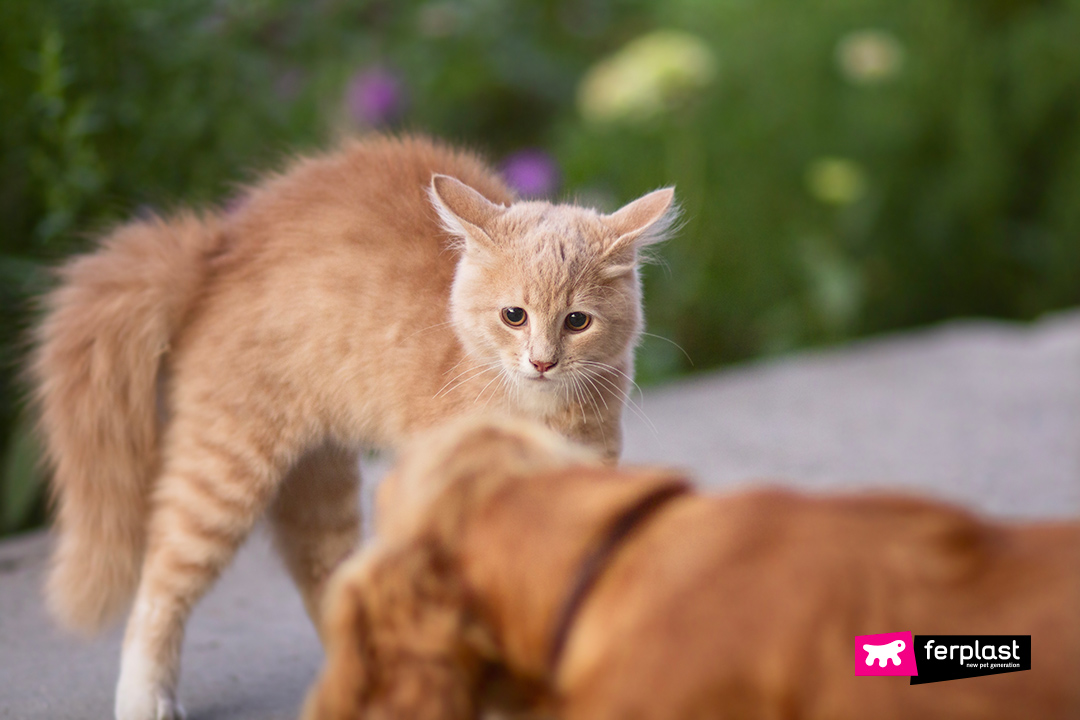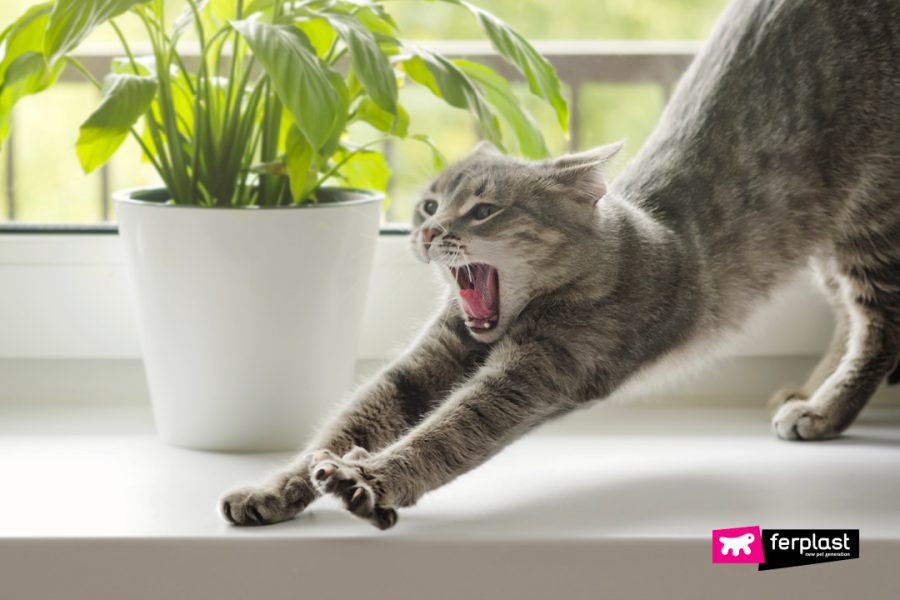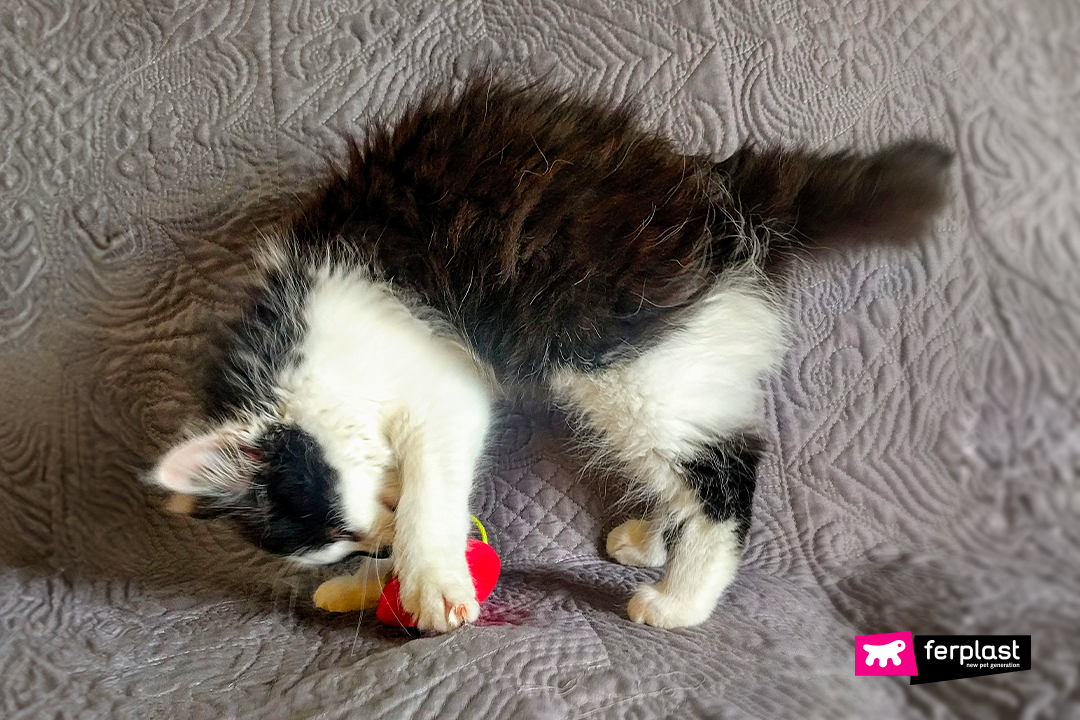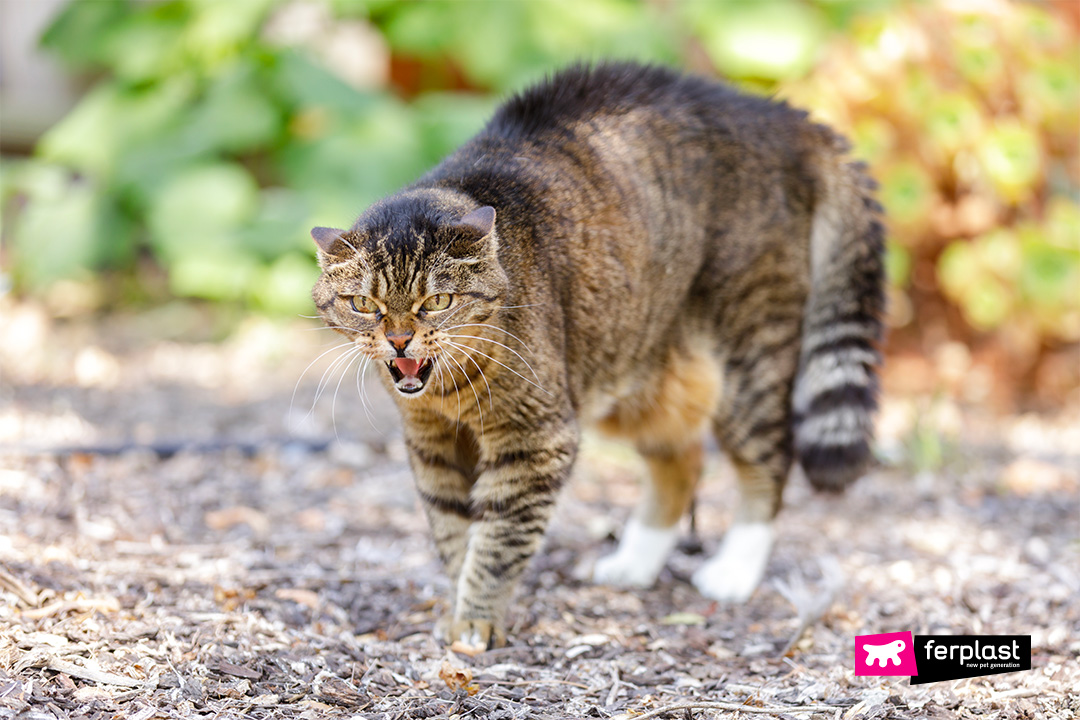Does your cat sometimes “hunch” and raise its tail? Don’t worry; it’s not an attitude to be immediately concerned about. Instead, it’s part of the many typical body languages of cats, which often seem so strange and peculiar to us.
Common belief suggests that this behavior is associated with a situation of fear or threat, but it’s not always the case. Below, we explain all the reasons why your cat hunches!
The cat hunches when playing or stretching
Especially when cats are kittens, they tend to adopt this behavior often during play, sometimes associated with funny sideways leaps. These are common and not at all alarming behaviors that help cats release some of the energy accumulated during play.
A cat’s spine is incredibly flexible, allowing them to make this particular movement effortlessly. During play, hunching becomes almost synonymous with “stretching” for cats and releasing tension! In fact, this posture is often adopted by cats upon waking from a refreshing nap to stretch their muscles, just like we humans would do!
During these moments, the cat is not threatening at all. At most, you might risk a little ankle ambush to shift your attention to continue playing!
The cat hunches when afraid
Hunching is an attitude closely related to the feline’s survival instinct. Through this strange movement of the spine, the cat appears larger and stronger and, therefore, more formidable.
That’s why when it’s scared or senses a threat nearby, it instinctively hunches, raising its tail and puffing up its fur. It’s a genuine defense behavior adopted in situations of fear or extreme discomfort.
The cat hunches when about to attack
There are some situations in which a cat hunches out of aggression and defense. Arching its back and raising and puffing up its fur are ways to confront the opponent and signal readiness to attack.
A cat’s body communicates with the outside world, which is why it’s necessary to always carefully evaluate its overall behavior. If the cat tends to hunch, the fur is erect, the ears are flattened, and it emits its characteristic “hiss,” it’s highly likely that it’s strongly irritated. In these situations, it’s best to keep your distance and not bother it to prevent it from attacking.
And your cat? Does it often hunch too? Assess the situation and try not to be immediately frightened or move away… perhaps it just wants to let you know it would like to play with you!




